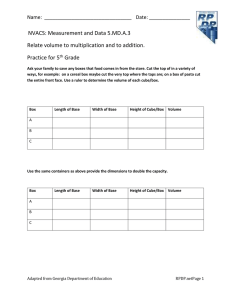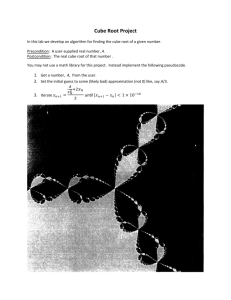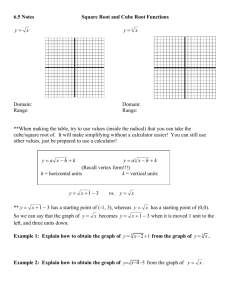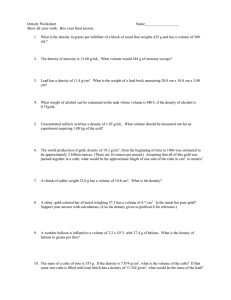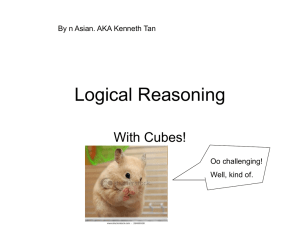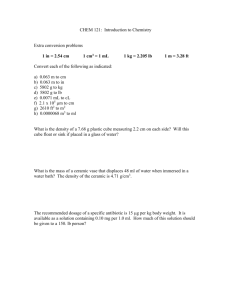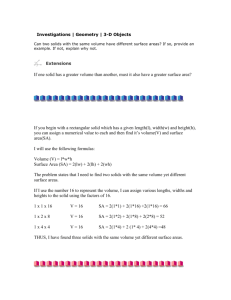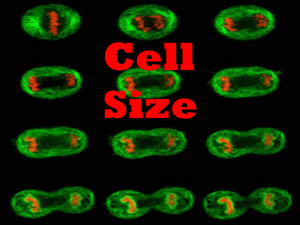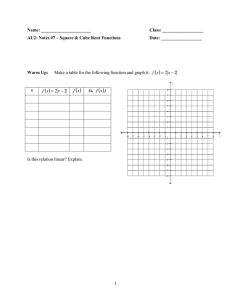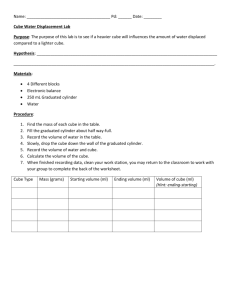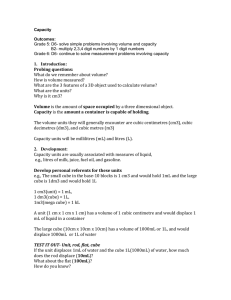Density of Regular Shaped Solids
advertisement
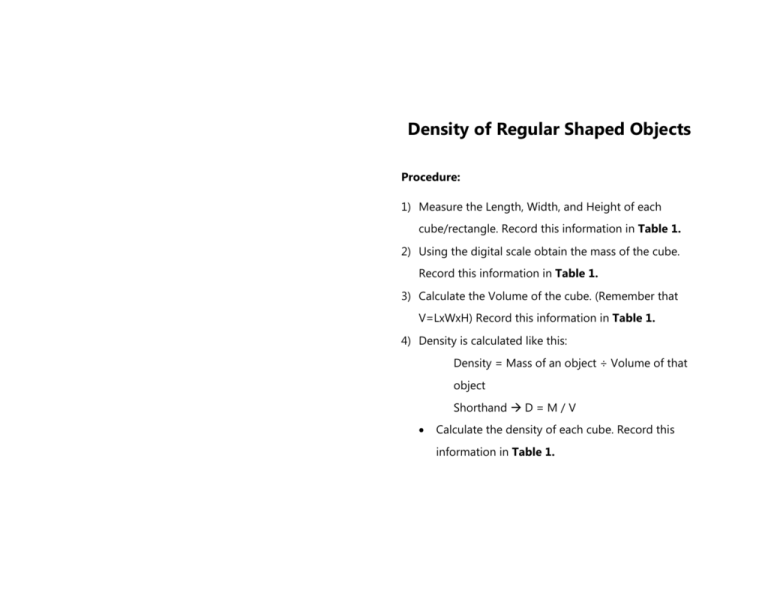
Density of Regular Shaped Objects Procedure: 1) Measure the Length, Width, and Height of each cube/rectangle. Record this information in Table 1. 2) Using the digital scale obtain the mass of the cube. Record this information in Table 1. 3) Calculate the Volume of the cube. (Remember that V=LxWxH) Record this information in Table 1. 4) Density is calculated like this: Density = Mass of an object ÷ Volume of that object Shorthand D = M / V Calculate the density of each cube. Record this information in Table 1. Cube 1 2 3 4 5 6 7 8 9 Number 1) If Mpg means miles that can be gotten per gallon of gasoline and Mph means miles that can be gotten in an hour. What does g/cm3 (read as Height grams per centimeter cubed) mean? Width _________________________________________________________ _________________________________________________________ Length _________________________________________________________ Volume 2) Which material has the most amount of matter? Explain your answer. _________________________________________________________ Mass _________________________________________________________ _________________________________________________________ Density 3) Which material has the least amount of matter? Explain your answer. Identity _________________________________________________________ Identify the material that each cube is made from _________________________________________________________ _________________________________________________________ using the following table. Record your answer in 4) If one cm3 is equal to one ml, calculate the density of a half liter bottle Table 1. of water that masses 20g. _________________________________________________________ _________________________________________________________ _________________________________________________________ Steel 7.6 - 8.3 PVC 1.4 – 1.6 Acrylic 1.16 - 1.5 Nylon 1.13 – 1.3 Oak .6 - .9 Brass 8.0 – 9.0 Pine .35 - .6 Copper 9.1 – 9.5 Polyethylene .98 -1.1 Aluminum 2.7 – 3.0 5) Create a BAR graph showing the densities of the objects. Density will be graphed on the Y-Axis and the types of cubes on the X-Axis
